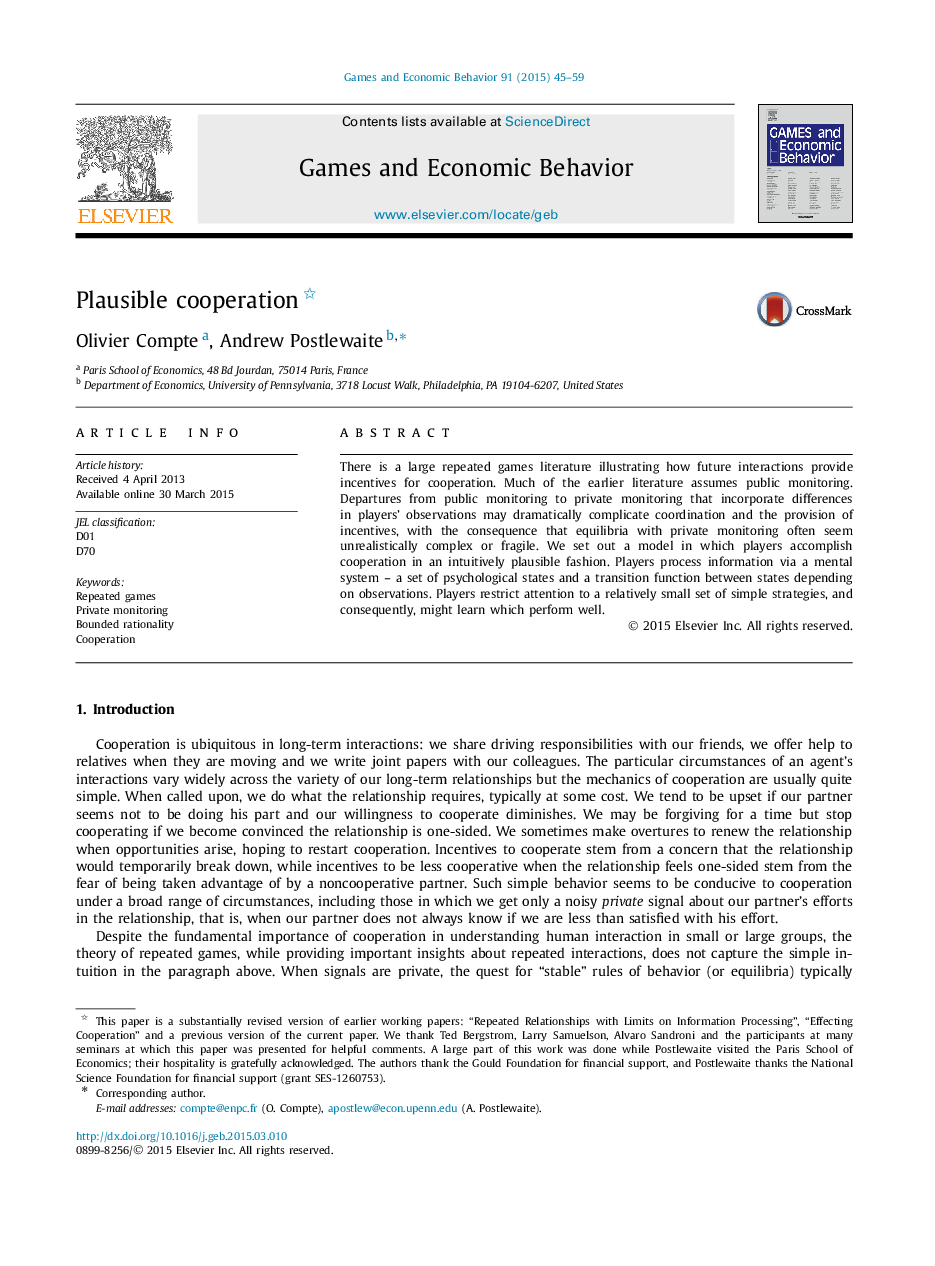| Article ID | Journal | Published Year | Pages | File Type |
|---|---|---|---|---|
| 5071654 | Games and Economic Behavior | 2015 | 15 Pages |
Abstract
There is a large repeated games literature illustrating how future interactions provide incentives for cooperation. Much of the earlier literature assumes public monitoring. Departures from public monitoring to private monitoring that incorporate differences in players' observations may dramatically complicate coordinationâ
and the provision of incentives, with the consequence that equilibria with private monitoring often seem unrealistically complex or fragile. We set out a model in which players accomplish cooperation in an intuitively plausible fashion. Players process information via a mental system - a set of psychological states and a transition function between states depending on observations. Players restrict attention to a relatively small set of simple strategies, and consequently, might learn which perform well.
Related Topics
Social Sciences and Humanities
Economics, Econometrics and Finance
Economics and Econometrics
Authors
Olivier Compte, Andrew Postlewaite,
